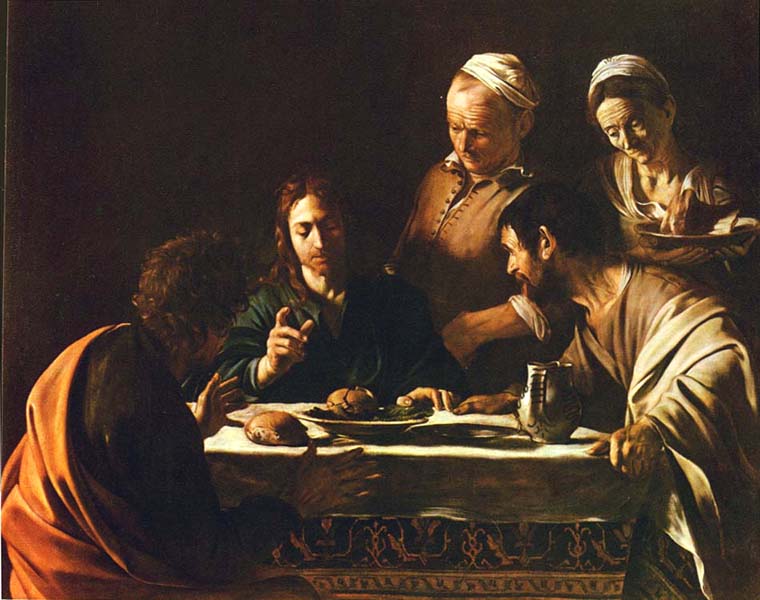 Easter 3-B
Easter 3-B April 26, 2009
Acts 3:12-19;
Psalm 4
1 John 3:1-7; Luke 24:36b-48
Easter changes everything.
We are transformed. God is transformed. We usually think of Easter as about, well, us: Jesus has come to us, if Jesus is raised from the dead, so will we be. Any of those death-dealing forces that we face in our lives – running out of money, people bossing us around, worry about the future, about losing our homes or our livelihood – all of us have a list of fears that overwhelm us – Easter means that none of those things can threaten us now. Jesus is risen from the dead – death has done its worst and still Jesus rises, AND SO WILL WE. Death can try to do its worst to us, and still we will live – still we will love; still people will love us; still life will be worth living.
But think about what Easter has done to God. Listen to this bit from a poem by Anne Sexton:
God owns heaven
but He craves the earth,
the earth with its little sleepy caves,
its bird resting at the kitchen window,
even its murders lined up like broken chairs,
even its writers digging into their souls with jackhammers,
even its hucksters selling their animals for gold,
even its babies sniffing for their music,
the farm house, white as a bone,
sitting in the lap of its corn,
even the statue holding up its widowed life, even the ocean with its cupful of students,
but most of all He envies the bodies,
He who has no body.
After Easter, God will never be the same. What it means to be human has now become part of what it means to be God. And if the poet Anne Sexton is right, and I think she is, God had long yearned to know what it meant to be human. God had long yearned to be so close to us that God, in all of God’s utter all-knowing and all-powerful self, actually became one of us. “God owns heaven,” the poet writes, “but God craves the earth.”
Easter changes everything.
God has ushered us in to a new reality – a new reality so rooted in this world that the whole world itself is changed.
Look at this gospel story again: Jesus appears. Dead, and yet alive. Fully alive. The disciples knew that he had been killed, that there was no hope, and yet here is the proof: he walks, he talks, and in the most mundane, most ordinary and most wonderful of things, Jesus says, “Have you anything here to eat?”
I have a friend who once served in a parish in a poor neighborhood. He was up in his study, preparing a sermon on this text, where Jesus walks into the midst of his friends and says, “Have you anything here to eat?” and as he was writing his sermon, under his window, in a poor, city neighborhood, a man cried out, “I am hungry!”
Can you imagine: God, walking in here, among us, crying out, “I am hungry! Have you anything here to eat?”

Easter changes everything.
We are transformed, God is transformed. And here, in this place, where we offer food and drink, bread and wine, where people walk in off the street and say, “Have you got anything here to eat?” Here in this place, where we and God meet, this very place is the beginning of the transformation of the world.
This world, this very neighborhood, cries out to us, “Have you anything here to eat?”


.jpg)
.jpg)







.jpg)

No comments:
Post a Comment